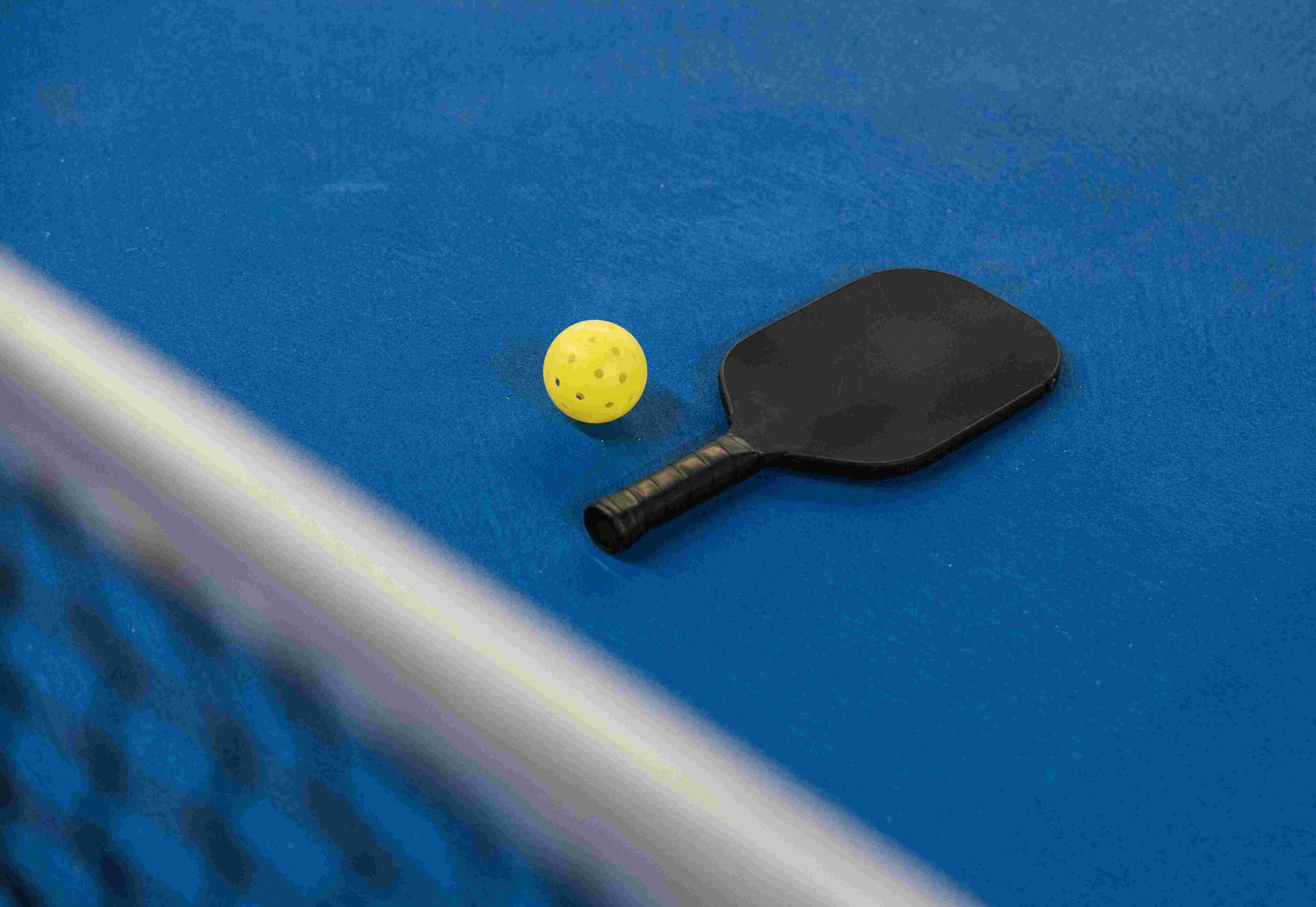
Synapse Physiotherapy
Introduction
Pickleball, a fast-growing sport across all age groups, offers an exciting mix of tennis, badminton, and table tennis. But while it’s fun and accessible, the sport is not without its physical toll. Whether you’re a beginner or a seasoned player, it’s easy to sustain injuries from repetitive movement, awkward lunges, or even accidental collisions. If you’ve found yourself sidelined with a sprained ankle, sore shoulder, or nagging knee pain, it’s time to consider professional help. The best place to start your recovery journey? A sports injury clinic.
A sports injury clinic is specifically designed to diagnose, treat, and rehabilitate musculoskeletal injuries related to physical activity. These clinics are equipped with experienced physiotherapists, rehabilitation specialists, and targeted treatment plans that help athletes and recreational players return to their sport stronger and safer. For pickleball players, this means more than just healing, it’s about preventing recurring issues and restoring full mobility so you can enjoy the game you love with confidence.
In this article, we’ll explore the most common pickleball injuries, why seeing a sports injury clinic matters, and how expert care can significantly improve your long-term outcome.
Common Pickleball Injuries
Though it may look like a low-impact game, pickleball involves quick lateral movements, pivoting, overhead shots, and frequent start-stop motions. These actions can put stress on joints and muscles, especially if you play frequently or without a proper warm-up. Some of the most common injuries include:
- Ankle sprains – often caused by sudden changes in direction
- Shoulder strains or rotator cuff injuries – from repetitive overhead shots
- Knee pain – due to jumping, pivoting, or playing on hard surfaces
- Tennis elbow – inflammation from repetitive paddle swings
- Achilles tendonitis – from sudden movement or poor footwear
- Lower back pain – from twisting and bending during play
While some injuries are acute (like falls or sprains), others build up over time. Consequently, ignoring the early signs can turn a small issue into a chronic condition that limits your mobility and affects your daily life.
Why Choose a Sports Injury Clinic?
1. Specialised Diagnosis
A general clinic might offer temporary relief, but a sports injury clinic focuses specifically on movement-related injuries. The goal isn’t just to mask the pain, it’s to identify the root cause, treat it effectively, and ensure it doesn’t return.
Sports injury clinics use advanced assessments to identify movement dysfunctions and diagnose injuries accurately. Physiotherapists understand the biomechanics of sports and can detect even subtle imbalances that contribute to injuries.
2. Targeted Treatment Plans
Every injury is unique. At a sports injury clinic, you’ll receive a treatment plan tailored to your needs, whether that involves manual therapy, corrective exercises, or advanced rehab techniques like dry needling or ultrasound therapy. In addition, progress is monitored closely to adjust your therapy as needed.
3. Rehabilitation with Return-to-Sport Focus
Recovery doesn’t end when the pain stops. Sports injury clinics guide you through a structured rehabilitation process that rebuilds strength, mobility, and neuromuscular control, ensuring you’re fully ready to return to the pickleball court.
4. Injury Prevention Education
Furthermore, you’ll also gain insights into how to warm up correctly, strengthen weak areas, improve your form, and reduce risk factors. This proactive approach can help you play more confidently and safely in the future.
What to Expect During Your Visit
A first visit to a sports injury clinic typically involves a detailed consultation and physical assessment. You’ll be asked about your injury history, level of activity, playing frequency, and any symptoms you’re experiencing. The physiotherapist will then conduct movement tests and possibly use tools like gait analysis or musculoskeletal ultrasound to get a deeper understanding of the injury.
From there, a personalised treatment plan is developed, which may include:
- Manual therapy – to reduce pain and improve mobility
- Taping or bracing – to protect the injured area during recovery
- Strength and conditioning exercises – tailored to your needs
- Stretching and mobility work – to improve the range of motion
- Electrotherapy or shockwave therapy – for tissue repair and pain relief
Follow-up sessions are usually spaced out based on your progress, with ongoing adjustments to your rehabilitation plan. For additional support, explore our Strength & Conditioning Programme.
Recovery Timeline for Common Pickleball Injuries
While every case is unique, here’s a general idea of how long common pickleball injuries may take to heal with proper treatment from a sports injury clinic:
- Mild ankle sprain: 2–3 weeks
- Rotator cuff strain: 4–6 weeks
- Tennis elbow: 4–8 weeks
- Achilles tendonitis: 6–10 weeks
- Knee pain (patellar tracking issues): 3–6 weeks
Starting treatment early can significantly shorten your recovery time and help you avoid long-term complications.
Tips to Prevent Pickleball Injuries
An essential part of sports injury clinic care is education, helping athletes prevent repeat injuries. Here are some quick prevention tips to keep you playing pickleball safely:
- Warm up properly: Dynamic stretching and light cardio are key.
- Use appropriate footwear: Court shoes with good grip and support reduce fall risk.
- Strengthen supporting muscles: Focus on core, hips, and shoulders.
- Rest between games: Don’t overload your body with excessive back-to-back play.
- Use correct technique: Improper mechanics can lead to strain and overuse injuries.
Many sports injury clinics also offer injury screening and movement assessments for active individuals who want to stay in peak condition.
Find a Clinic That Understands Your Sport
Not all physiotherapy clinics are created equal. If you’re passionate about pickleball, choose a sports injury clinic with experience treating racquet sport players. Their team will understand the physical demands of the sport and design a plan that suits your goals, whether that’s getting back to casual games or preparing for competitive tournaments.
Look for clinics that offer:
- Experienced sports physiotherapists
- Access to modern rehab equipment
- Clear communication and patient education
- A focus on return-to-sport and performance
Learn more about our specialised sports physiotherapy services and how we tailor treatments for racquet sport athletes.
Frequently Asked Questions (FAQs)
1. Can I treat a pickleball injury at home before visiting a clinic?
Yes, you can apply rest, ice, compression, and elevation (RICE) for minor injuries. However, persistent or severe pain should be evaluated at a sports injury clinic for proper diagnosis and recovery planning.
2. How soon should I visit a sports injury clinic after an injury?
Ideally, visit within the first 48–72 hours, especially if you’re experiencing swelling, reduced mobility, or sharp pain. Early intervention can prevent further damage and speed up healing.
3. Do I need a referral to attend a sports injury clinic?
In most cases, no referral is necessary. You can directly book an appointment with a sports injury clinic and start your assessment and treatment plan immediately.
4. Will the treatment involve exercises or just manual therapy?
Treatment plans are typically comprehensive. You’ll receive both manual therapy and a personalised exercise regimen aimed at restoring strength and preventing re-injury.
5. Are sports injury clinics only for athletes?
Not at all. While they specialise in sports-related injuries, sports injury clinics also treat recreational players, fitness enthusiasts, and anyone experiencing musculoskeletal pain.
Conclusion
Pickleball injuries don’t have to keep you off the court for long. With the right support from a sports injury clinic, you can recover faster, move better, and play without fear of re-injury. Whether you’re dealing with a sore shoulder or a stubborn ankle sprain, don’t wait to take the first step toward healing and long-term joint health.
Explore more about our team and recovery programmes and invest in your body so you can keep enjoying the game stronger, smarter, and injury-free.
Tags :

Back & Neck Pain
Conditions such as stiffness, postural abnormalities and muscle overuse from prolonged desk work at the office or home is more prevalent than most would think. We provide the necessary tools to fix you up and educate you on ergonomics which can unload unnecessary stress.
- Spine & Core Rehabilitation
- Strength & Conditioning Programme
- Pain Management
- Biomechanical Assessment
- Sports Physiotherapy
- Group Class
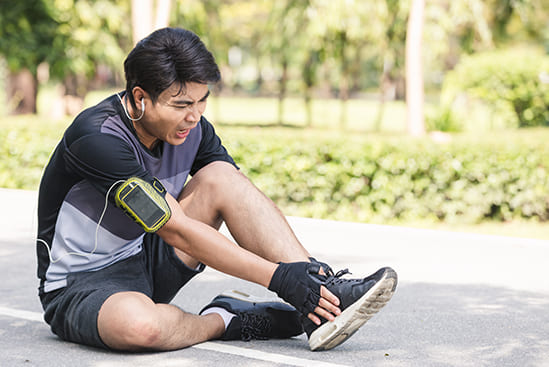
Sports Injuries
Rolled ankles, jarred knees, impinged shoulders are few conditions in the plethora of sports injuries which can hamper performance and limit our enjoyment of sports. Physiotherapy not only treats the symptoms of these conditions but propels your overall fitness to greater heights.
- Strength & Conditioning Programme
- Pain Management
- Biomechanical Assessment
- Sports Physiotherapy
- Shockwave Therapy
- Group Class

Work Desk Injuries
Conditions such as stiffness, postural abnormalities and muscle overuse from prolonged desk work at the office or home is more prevalent than most would think. We provide the necessary tools to fix you up and educate you on ergonomics which can unload unnecessary stress.
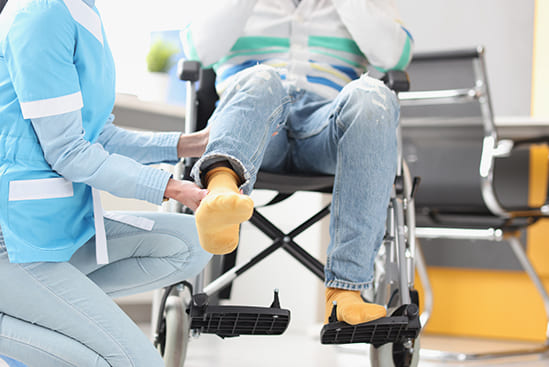
Pre-Post-Surgical Conditions
Surgery involves going through preparation both before and after. Physiotherapists play a vital role in getting your body ready for surgeries with circulatory, breathing and strengthening exercises. After the procedure, let us be there for your recovery and rehabilitation, taking it one step at a time.

Scoliosis & Postural Abnormalities
The way we stand, sit, walk and sleep has influence over our posture and the overall balance of muscles controlling its alignment. A comprehensive screening can be done by our physiotherapists to detect abnormalities, which we will aid in correcting.
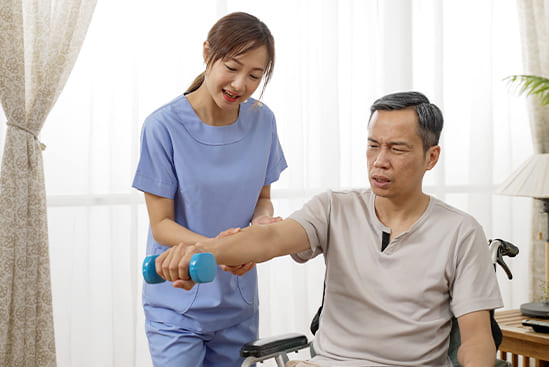
Neurological Conditions
Neurological disabilities such as stroke, nerve compression and neuropathies can be barriers for patients to live life to its fullest. We at Synapse are committed to help you overcome these hurdles by ensuring functional mobility and quality of life is at its optimum by providing the right treatment and exercises.
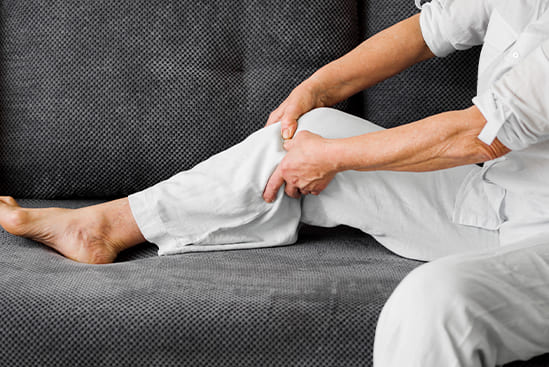
Osteoarthritis & Rheumatism
Joint degeneration and inflammation happens as the human body grows older, but that does not mean our way of life degenerates as well. Relief your joint pains with a joint effort together with your physiotherapist, who will provide pain-relief treatments and prescribe exercises for your wellbeing.
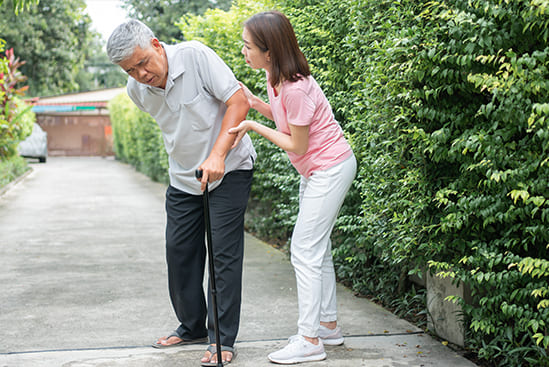
Conditions Relating To Elderly
Common conditions in the older age population include hips & knee pain, back & neck pain, osteoarthritis, rheumatism, fear of falling and many more. Aging and degeneration of bodily function is inevitable, but here at Synapse, we will help you live the best of your life.
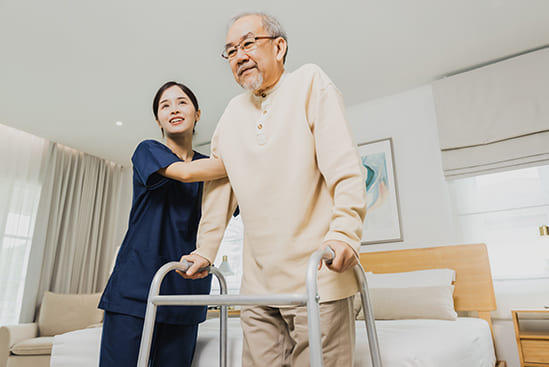
Home Physiotherapy
We understand that some conditions or injuries can make it difficult to receive rehabilitation at our clinic be it mobility or transportation issues. Our objective is to provide you with the same high-quality physiotherapy services at home that you would receive in-clinic.
